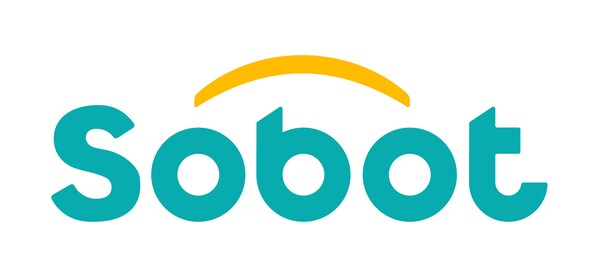 |
Joint study between Cognizant and Oxford Economics predicts AI will drive 46% of consumer transactions in the U.S. by 2030, underscoring the business need to leverage AI to reimagine customer experiences
TEANECK, N.J., Jan. 17, 2025 /PRNewswire/ -- Today Cognizant (NASDAQ: CTSH), in collaboration with Oxford Economics, unveiled new insights into how artificial intelligence (AI) is set to revolutionize the consumer purchasing journey by 2030 and drive significant economic impact. The study, New Minds, New Markets, shows that as income and purchasing power increases among 18 to 44-year-old AI enthusiasts, this demographic will command an estimated $4.4 trillion of AI-influenced consumer spending in the U.S. by 2030. In the U.K., this spending projection is estimated at $690 billion, in Australia it's at $669 billion, and in Germany it's at $539 billion.
The study also predicts that U.S. consumers who embrace AI could drive nearly half (46%) of spending by 2030. In Australia, this projection rises to 55% over the same period. In Germany it's estimated at 46% and in the U.K., it's at 39%.
"As AI-influenced buying evolves, businesses must navigate mixed consumer attitudes towards AI," said Ravi Kumar S., CEO of Cognizant. "Enterprises are balancing the demand for convenience with the need for control and trust. Understanding these attitudes is crucial for developing AI solutions that not only enhance convenience but build confidence in the full potential of how AI can reimagine the customer experience and unlock tremendous value."
To inform the study's findings, Cognizant and Oxford Economics examined historic patterns of consumer technology adoption across a range of demographics and grouped them into cohorts based on behavioral dynamics. It then aligned these cohorts with data from a survey of 8,400 respondents focusing on their openness to using AI in the buying experience. With 75% of all respondents noting they have frustration with the buying process today, the study found the transformative potential of AI will reshape the purchasing journey in three pivotal phases in the years to come: Learn (when consumers learn about new products), Buy (when consumers make a purchase), and Use (when consumers are in the process of using a product):
- Consumers are most comfortable using AI in the discovery phase of making a purchase decision (the Learn phase). Across all consumer age groups, 47% cite they are comfortable using AI to help choose products and services. In this phase, AI-powered search tools, personalized recommendations and virtual assistants can be essential tools in the discovery and evaluation stages of consumer journeys. Technology companies are already building these capabilities into their consumer-facing toolsets, making it easier for consumers to use AI to gather information and shortlist options.
- During the decision-making phase (the Buy phase), consumers harbor more hesitation. In this phase, consumers share concerns around security and trust when it comes to using AI. The study showed 75% of consumers are unlikely to allow AI to automatically reorder or pay for high value items without their direct authorization. Additionally, only 16% of those who are 55 years and older are comfortable using AI during this phase (and only 33% are comfortable among the 18–44-year-old group).
- Comfort levels begin to rebound in the post-sale engagement phase (the Use phase). In this phase, consumers benefit from AI's ability to help them tap into time savings and targeted services that add value to their after-purchase experience. Across all consumers, nearly a third (28%) said they are comfortable with AI reordering low-priced items. For example, smart HVAC systems could intelligently reorder air filters from the manufacturer directly, reducing the onus on consumers to identify the need for replacements themselves or reliance on local retailers to deliver supplies in a timely manner.
Capitalizing on the AI-augmented opportunity
This study underscores the work Cognizant is doing to help business leaders across industries adapt to AI-empowered consumers, particularly as AI agents begin to power more consumer purchasing experiences, orchestrating complex tasks across the buying journey. The estimated economic impact of this evolution is significant -- as AI adoption continues to grow, Cognizant and Oxford Economics' New Work New World study predicts AI could inject $1 trillion into the U.S. economy by 2032.
Cognizant is helping businesses adjust to new rules of engagement that integrate AI into familiar environments and supporting work to enhance convenience, ensure secure interoperability, and build trust through human involvement.
To further support the acceleration of enterprise AI adoption, Cognizant launched Cognizant Moment™, the next evolution of the company's digital experience practice area, designed to help clients leverage the power of AI to reimagine customer experience and engineer innovative strategies aimed at driving growth. Now, as the ways consumers interact with technology are shifting, Cognizant aims to give clients the tools and insights they need to drive differentiation, cultivate customer loyalty and become future-ready.
Also critical to helping the acceleration of AI adoption is Cognizant's Synapse program, a global upskilling initiative designed to revolutionize and rebalance the landscape of tech education and workforce development by redefining opportunities for more than one million individuals worldwide.
To view the complete study and learn more, click here.
Methodology:
In mid-2024, Cognizant and Oxford Economics devised a multi-modal study to examine how AI will change consumer behaviors and, therefore, the customer purchase journey. The study included both a qualitative and a quantitative component: a survey of 8,400 adults across the UK, US, Australia and Germany, and 80 in-depth interviews with consumers in the same regions. For the full methodology, click here.
About Cognizant
Cognizant (Nasdaq: CTSH) engineers modern businesses. We help our clients modernize technology, reimagine processes, and transform experiences to stay ahead in our fast-changing world. Together, we're improving everyday life. See how at www.cognizant.com or @cognizant.
For more information, contact:
Corporate
Gabby Gugliocciello
Gabrielle.Gugliocciello@cognizant.com
India
Rashmi Vasisht
rashmi.vasisht@cognizant.com
Americas / EMEA / APJ
Christina Schneider
christina.schneider@cognizant.com
Forward-Looking Statements
This press release includes statements that may constitute forward-looking statements made pursuant to the safe harbor provisions of the Private Securities Litigation Reform Act of 1995, the accuracy of which are necessarily subject to risks, uncertainties and assumptions as to future events that may not prove to be accurate. These statements include, but are not limited to, express or implied forward-looking statements relating to the adoption of generative artificial intelligence, the effects of generative artificial intelligence on the consumer spending and the economy and the effectiveness and results of our new Synapse initiative. These statements are neither promises nor guarantees but are the findings of the studies discussed above and remain subject to a variety of risks and uncertainties, many of which are beyond our control, which could cause actual results to differ materially from those contemplated in these forward-looking statements. Existing and prospective investors are cautioned not to place undue reliance on these forward-looking statements, which speak only as of the date hereof. Factors that could cause outcomes to differ materially from those expressed or implied include general economic conditions, the impact of technological development and competition, the competitive and rapidly changing nature of the markets we compete in, the competitive marketplace for talent and its impact on employee recruitment and retention, and the other factors discussed in our most recent Annual Report on Form 10-K and other filings with the Securities and Exchange Commission. Cognizant undertakes no obligation to update or revise any forward-looking statements, whether as a result of new information, future events, or otherwise, except as may be required under applicable securities law.










